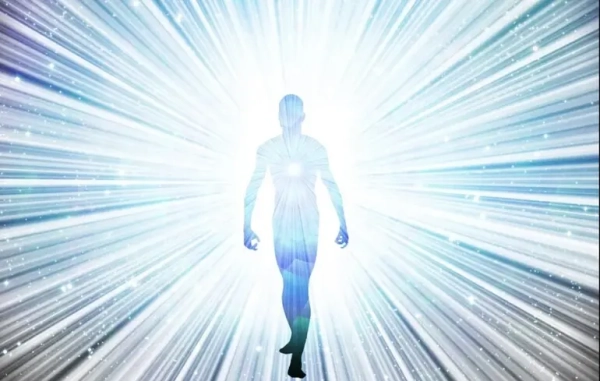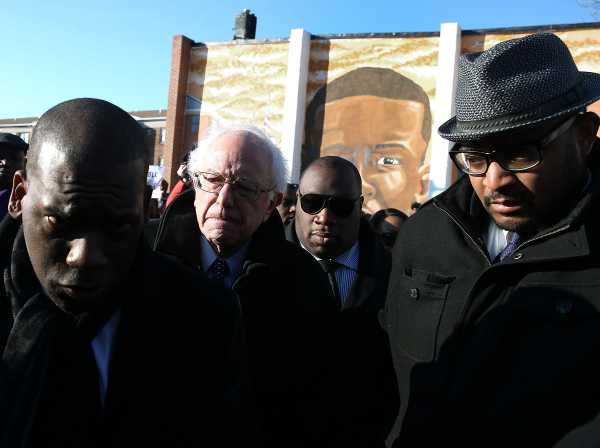
DURHAM, NC — Sen. Bernie Sanders entered Duke University Chapel on Thursday night to hundreds of people singing “This Little Light of Mine.” Sitting down with NAACP national board member the Rev. William Barber II, Sanders’s conversation brought up a familiar theme of his 2016 campaign: the “moral economy.”
“There is no excuse for 40 million Americans living in poverty,” Sanders thundered on Thursday night. “The way we bring about change is having the courage to talk about a reality that you may not see on a TV and you surely will not hear discussed in the United State Congress.”
It was a different feel to many of his 2016 campaign rallies, even though the Vermont senator’s core message has not changed. Instead of speaking to a crowd of mostly white and mostly secular settings, Sanders not only shared his message with a predominantly black audience, he sang along in a nod to the long history of the black church and politics.
One of the biggest problems Sanders had in 2016 during his insurgent presidential campaign was in Southern states, where the African-American vote is crucial to securing the Democratic nomination. Now, as the senator from Vermont seriously mulls a presidential run in 2020, he’s not going to make the same mistake again.
Sanders has been crisscrossing Southern states this month, speaking to black voters. He marched in Memphis with the Rev. Al Sharpton and other black leaders on the 50th anniversary of Martin Luther King Jr.’s death.
“If he can make that announcement — just confirm that would be true or not — I think that would be pretty dope,” said Travis Smith, a junior at Duke studying neuroscience, and a member of the campus NAACP chapter. Smith supported Sanders “1,000 percent” in 2016.
While Sanders is making a noticeable effort to shore up support among black voters and faith leaders in the South ahead of the 2020 cycle, not everyone is sold.
“I do see he’s making the effort now; how many inroads he’s making? I’m not sure,” said John Verdejo, a DNC committee member from Raleigh, North Carolina and 2016 delegate for Sanders.
Sanders is showing up in the South. But is that enough?
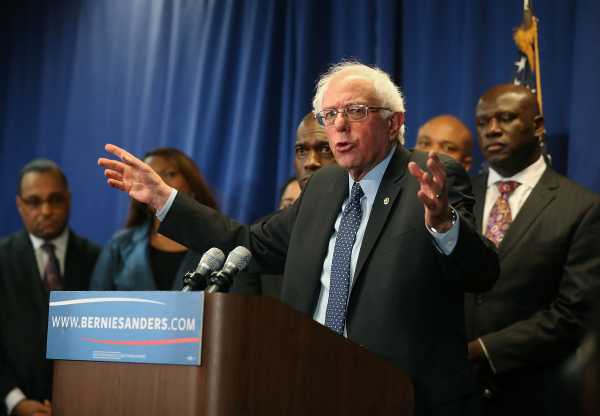
After his Democratic rival Hillary Clinton trounced him among black voters in the South in 2016, Sanders is trying to test the waters and build key coalitions well before 2020. But it has been a bumpy ride for a politician whose trademark is his matter-of-fact and sometimes abrasive style.
The Vermont senator’s bluntness was part of what made Sanders a star in 2016, but it could backfire for him in 2020. Some voters of color are of two minds about Sanders: They love the policies he’s proposing, like Medicare-for-all, pay equity, and a $15 minimum wage. But some think he fundamentally doesn’t understand how to navigate the complex dynamics of the South.
“I do believe Bernie Sanders struggled then and clearly now with black voters overall,” said Ray McKinnon, a black pastor from Charlotte, North Carolina, who is a member Democratic National Committee and former Sanders delegate in 2016. “The guy’s from Vermont, it’s not like he has a massive [black] constituency. He failed to connect on a visceral sense.”
That point was hammered home for McKinnon during Sanders’s recent talk in Jackson, Mississippi, with that city’s 35-year-old Mayor Chokwe Antar Lumumba. The talk sparked a backlash because of comments the senator made about Barack Obama, calling him a “charismatic individual” and “extraordinary candidate.”
The reaction from some in the black community was swift — and furious, over what some felt was Sanders dismissing Obama’s historic legacy as the nation’s first African-American president. In 2016, many thought Clinton’s success was that she simply hugged Obama’s legacy tighter than Sanders, who had some criticisms of Obama, did.
“Bernie 2020 died 4/4/18,” former South Carolina state Rep. Bakari Sellers tweeted following the event. Actor Jeffrey Wright torched Sanders, saying the senator was acting ignorantly.
Then, Sanders himself lashed out — criticizing his attackers in a strongly worded tweet.
Watching the whole event play out, McKinnon said it reinforced his concerns about Sanders.
“Bernie’s problem is the problem of privileged white people in general,” McKinnon told me. “It’s, ‘I didn’t mean anything bad by this, so I’m okay.’ I think Bernie would do well to listen to that criticism and sit with it and ask where did he err as opposed to lashing out.”
If Sanders wants to make gains with voters of color — a constituency he badly needs in the 2020 primaries — he can’t rely on progressive policies alone, McKinnon and Verdejo said. The senator also needs to work on his personality.
“It’s not enough to be right, I think he’s right on most issues,” McKinnon said. “You have to care about optics. You have to care about what people say and how they feel about you.”
How Sanders lost black voters in 2016 — and what he needs to do in 2020 to win them over
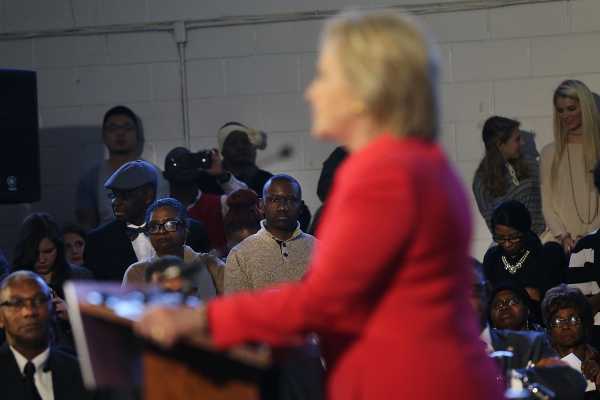
When the postmortem of the 2016 primaries came in, the results were clear — Clinton had far outperformed Sanders among black voters, especially among older voters.
Clinton understood coalition politics and the social and political landscape of the South — she had the added benefit of being the former first lady of Arkansas and a former lawyer for the Children’s Defense Fund, working in the Deep South. Her husband’s presidency had hinged on the support of black voters, so she understood the community well. When all was said and done, she won more than 70 percent of the African-American vote in most states with a sizable black population, according to NBC News exit polls.
Those polls showed that about an equal portion of young black voters cast their ballots for Sanders as they did for Clinton, but she crushed Sanders among voters above the age of 30 and especially over the age of 45.
Sanders hails from Vermont — a state that’s one of the whitest in the nation. His base in the 2016 primaries reflected that; Sanders primarily picked up white voters, pulling out surprising wins in states including New Hampshire and Midwestern states including Wisconsin and Michigan. (Trump narrowly won the latter two states, helping put him over the top in the general election.)
“Secretary Clinton cleaned our clock in the Deep South, no question about it,” Sanders said during one Democratic primary debate. “That is the most conservative part of this great country. But you know what, we’re out of the Deep South now. And we’re moving up.”
McKinnon said he thinks Sanders doesn’t understand how to operate in the South and what it takes to win over black leaders. It starts with deference and respect, especially to elders, he said.
“I don’t think he fully appreciates the role faith communities play here in the South,” McKinnon told me. “I think he struggles because he hasn’t had to do a lot of work in the South, he doesn’t understand the different dynamics in the South. The role of the church and pastors, the massive deference you give to elders.”
Events like Thursday’s talk with Barber, the leader of the Moral Monday movement, could help, both in building relationships with faith leaders and appealing to black voters. The crowd that showed up to hear Sanders and Barber speak was certainly more diverse than many of his 2016 campaign crowds.
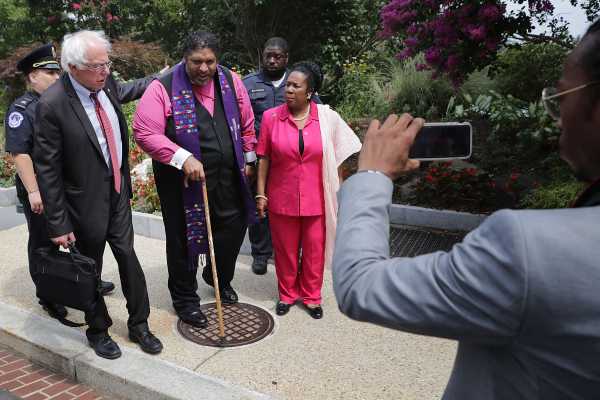
Sanders and Barber talked about the intersection of economic and racial injustice — although Barber confronted the race issue much more directly and often throughout the evening, focusing largely on voter suppression and redistricting that targets African Americans. It’s a huge issue in North Carolina: The US Supreme Court ruled the state’s old congressional maps were to be struck down as an unconstitutional racial gerrymander in 2016.
“People use racialized gerrymandering and voter suppression tactics … but when they get in office they pass policies that mostly hurt white people,” Barber said, mentioning the Republican Congress’s vote to pass steep tax cuts for wealthy corporations and attempts to repeal Obamacare.
Although Sanders certainly mentioned issues of race, including criminal justice reform and voter suppression, the core of his message remained on the economic injustices that black, white, and Latino people all face.
Verdejo still believes Sanders’s core message about economic inequality is important, but it doesn’t capture the racial complexities of the America that he and other people of color live in — especially in the wake of police shooting after police shooting and recent news about two young black men arrested at a Philadelphia Starbucks simply for asking to use the bathroom of without ordering anything first.
“It still does not matter, your place in society,” Verdejo said. “If you’re a person of color, you can easily be gunned down by the police.”
Duke senior Erica Onuoha agreed, saying Sanders’s economic vision is well and good, but it doesn’t address the current racially charged landscape in the US.
“He was too idealistic for black people, in general,” Onuoha told me. “I think we’re more realistic right now. Right now, we’re just trying to go to a coffee shop and not get the police called on us.”
There will likely be a lot more choice in the Democratic field for 2020 — including candidates of color
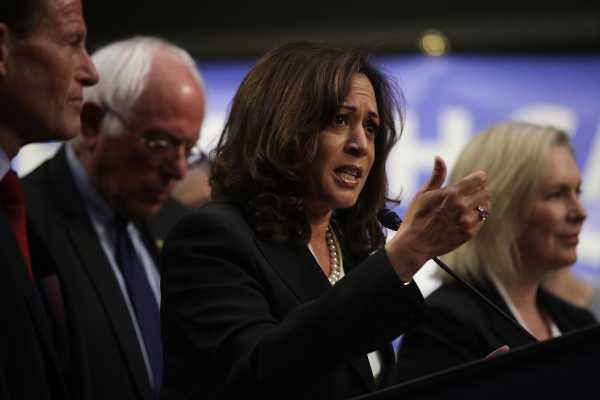
There was a stark contrast in 2016 between Sanders and Clinton, the two main candidates running for the Democratic nomination. The 2020 presidential race is still two years away but the Democratic field shaping up is huge — and could arguably be a race to see who is the most progressive Democratic candidate.
There’s no question Sanders has left his mark on the Democratic Party since he ran in 2016: Sanders’s policies — including single-payer health care (a bill he has introduced in the Senate and that is backed by several fellow Democrats), pay equity, a $15 minimum wage, and affordable college — have become somewhat of a litmus test for Democratic candidates across the country.
But is he the person to lead the party?
There’s far less consensus around that question. Besides Sanders, other names that come up often in 2020 speculation include Sanders’s fellow Democratic Senate colleagues including Sens. Elizabeth Warren, Kamala Harris, Cory Booker, Kirsten Gillibrand, and Chris Murphy. Other names being floated include former Vice President Joe Biden, former Maryland Gov. Martin O’Malley, immigration advocate Rep. Luis Gutierrez, former attorney general Eric Holder and Jason Kander, the former Missouri secretary of state.
Former Sanders delegates Verdejo and McKinnon says Sanders isn’t at the top of their 2020 list, especially with two candidates of color potentially stepping in to run. McKinnon, in particular, is excited about the possibility of Sen. Harris stepping up to run — more so than Booker, who he views as Democratic politics as usual.
“I love Kamala Harris,” he said. “I would love for us to elect a woman, and I would love for us preferably to elect a woman of color. It’s time for us to get some new perspective.”
Verdejo is considering a wider list of candidates; a native Puerto Rican, he likes things that Sanders and Martin O’Malley are saying about helping the island after it was destroyed by Hurricane Maria. He’s also intrigued by Kander, a young attorney and politician with a lower national profile who is especially focused on improving voting rights and access. Still, Verdejo isn’t sold on the idea of another white man coming to represent Democratic minority voters in the next presidential election.
“Here’s this white guy from Vermont, and he’s going to be our savior,” Verdejo said. “Some of us have been there so many times. I’m a supporter of his, but even I grapple with that.”
Sourse: vox.com

